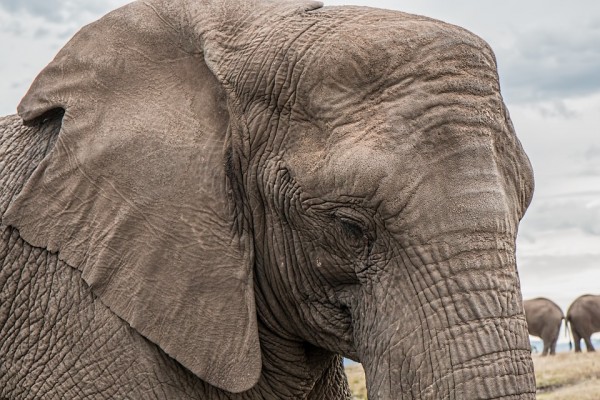By Ana Verayo, | March 02, 2017

Elephants can survive with only two hours of sleep per day.
Humans need around eight hours of sleep a day to get full rest. However, a new study reveals how elephants do not sleep at all, instead, they just nap for around a few hours a day.
In a new study that investigates the sleeping patterns of these iconic, massive creatures, researchers were able to observe these on bigger mammals. Larger mammals are more prone to sleep less than smaller species, and this new study marks the first to identify how much sleep does an elephant need to survive.
Like Us on Facebook
Researchers from the University of the Witwatersrand, South Africa, Paul Manger and his team were able to study female African elephants and determined how they only sleep for just two hours a day. This also means that this is the shortest sleep period for any mammal, where these elephants can stay awake for up to 46 hours straight.
In this new study, researchers monitored and tracked two matriarch elephants for 35 days. They then observed them through an actiwatch which is an implant similar to a Fitbit worn around their trunks, including a GPS collar.
Their new data revealed how elephants sleep and how short those periods were, at around two in the morning to six A.M. These elephants can also sleep standing up and only showed "recumbent sleep" during every third or fourth day of no sleep. Researchers say that this potentially limits their ability to reach REM or deep sleep every time they rest.
For humans, REM (rapid eye movement) sleep is more often than not linked with vivid dream states. Researchers now question whether elephants can see internal imagery while napping or rather, possess the ability to dream since they cannot achieve a REM state.
Their data also indicates that despite shorter sleep periods, the animals do not experience loss of energy during their waking moments. During a few events into the team's observations, one female was able to walk 30 kilometers before sleeping.
This suggests that this journey might be driven by poachers, predators or even other rival elephants that prevented them from sleeping in their habitats. This new study is published in the journal, PLoS One.
-
Use of Coronavirus Pandemic Drones Raises Privacy Concerns: Drones Spread Fear, Local Officials Say

-
Coronavirus Hampers The Delivery Of Lockheed Martin F-35 Stealth Fighters For 2020

-
Instagram Speeds Up Plans to Add Account Memorialization Feature Due to COVID-19 Deaths

-
NASA: Perseverance Plans to Bring 'Mars Rock' to Earth in 2031

-
600 Dead And 3,000 In The Hospital as Iranians Believed Drinking High-Concentrations of Alcohol Can Cure The Coronavirus

-
600 Dead And 3,000 In The Hospital as Iranians Believed Drinking High-Concentrations of Alcohol Can Cure The Coronavirus

-
COVID-19: Doctors, Nurses Use Virtual Reality to Learn New Skills in Treating Coronavirus Patients







